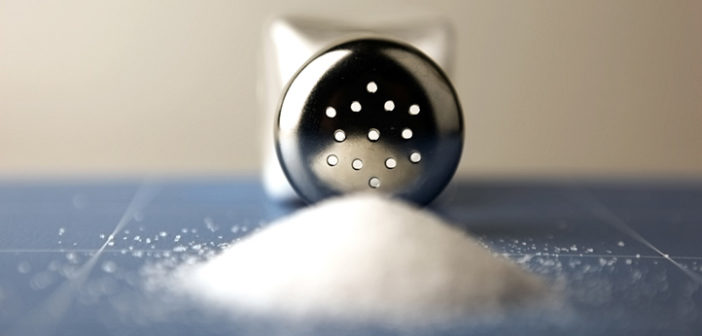The need to watch salt intake has just been amplified. According to a new report, too much consumption of salt is dangerous to your health as it may increase your blood pressure and cholesterol, but it might also dementia.
Researchers from Weill Cornell Medicine in New York recently conducted an experiment, published in the Nature Neuroscience journal, to determine if salt was linked to memory loss.
To do so, they observed mice, which were split into two groups. One group was given food containing four percent salt, and the other was fed food with eight percent salt. The amounts represented an “8- to 16-fold increase in salt compared to a normal mouse diet” and was comparable to a high-salt diet for humans, scientists noted.
After eight weeks, they examined the animals using magnetic resonance imaging, which captured photos of the anatomy and physiology of the brain.
They discovered the high-salt diet reduced resting blood flow to the brain, causing dementia. They saw a 28 percent decrease in the cortex and 25 percent in the hippocampus, which are two areas of the brain associated with learning and memory.
Analysts also administered a recognition test, and the mice that consumed more salt performed significantly worse, compared to mice on a regular diet. Mice with salty diets spent less time building nests and gathering materials. This was the case even with healthy blood pressure levels.
“We discovered that mice fed a high-salt diet developed dementia even when blood pressure did not rise,” senior author Costantino Iadecola said in a statement. “This was surprising since, in humans, the deleterious effects of salt on cognition were attributed to hypertension.”
Why is that?
They discovered that the high-salt diet prompted an immune response in the gut, which increased a protein called interleukin 17. Its job is to regulate immune and inflammatory responses. However, high levels of interleukin 17 can cause a reduction in the production of nitric oxide, which affects brain functions.
Luckily, they revealed they were able to reverse the immune signals by discontinuing the high-salt diets and prescribing interleukin 17 lowering drugs.
Scientists now hope to continue their investigations by further exploring interleukin 17 and other ailments associated with it.
They said their findings may be able to “benefit people with diseases and conditions associated with elevated IL-17 levels, such as multiple sclerosis, rheumatoid arthritis, inflammatory bowel disease and other autoimmune diseases.”




